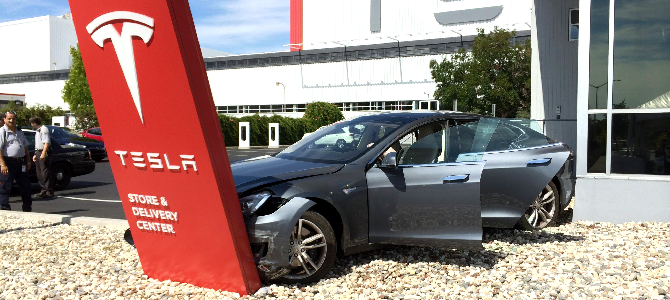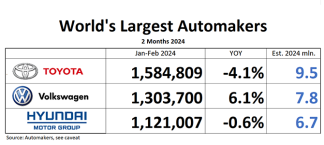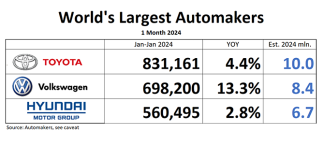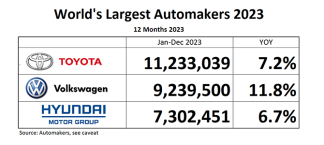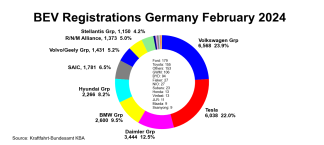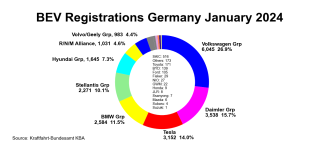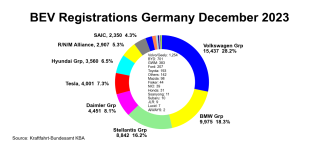Tesla Motors prides itself of being totally different from the legacy carmakers. Indeed, it is. Established automakers have long learned that publicly blaming the customer is corporate suicide. In their own interest, established automakers rather swallow their considerable pride before publicly questioning the honor and professionalism of a journalist. Established automakers have been taught that obstructing the work of the NHTSA amounts to grave-shoveling. Unlike every other automaker, Tesla blames its customers, attacks journalists, and implicitly calls its regulator NHTSA a bunch of liars, all in one public corporate blog post. As Lou Whiteman just wrote, if Tesla ever wants to become one of the big boys, then Tesla needs to grow up.
On Wednesday, my partner Ed Niedermeyer drew attention to a highly questionable practice by electric automaker Tesla Motors. Tesla appears to demand “an NDA from owners in exchange for satisfaction regarding its vehicle defects.” An NDA is a Non Disclosure Agreement, an agreement to remain silent. While NDAs are quite common in Silicon Valley’s software trade, they are unheard-of in the auto-business, especially when it comes to warranty and make-good work on cars. The National Highway Traffic Safety Administration (NHTSA) relies on defect reports by customers. Putting customers under gag orders would run counter to the agency’s intentions. After our story was published, the NHTSA issued a strongly-worded statement:
“NHTSA learned of Tesla’s troublesome nondisclosure agreement last month. The agency immediately informed Tesla that any language implying that consumers should not contact the agency regarding safety concerns is unacceptable, and NHTSA expects Tesla to eliminate any such language.”
The agency’s actions created headlines all over the world. They also prompted Tesla Motors to write a blog post. That post embodies everything a legacy automaker would be loath to do.
Tesla blamed its customer. The owner of a Model S with a faulty ball joint represents “a very unusual use case,” says Tesla, because the “owner lives down such a long dirt road that it required two tow trucks to retrieve the car.” Nobody who wants to stay in the auto business blames customers, period, and especially not for durability issues, or for where customers live. Of course, this customer was immediately heard from on the Tesla Motors Club forum, saying that “Tesla has lost all credibility,” due to the fact that he lives “on a paved road in the city of Connellsville, PA.’ However, “the car was towed from a dirt road as I stated earlier because I was out morel mushroom hunting that day with my wife.” With that, we will leave the matter of busted ball-joints and dirt road customers to the NHTSA and Tesla to sort out.
As for that, “NHTSA has not opened any investigation nor has it even started a preliminary evaluation,” claims Tesla in its blog post. NHTSA on the other hand says that it “is examining the potential suspension issue on the Tesla Model S, and is seeking additional information from vehicle owners and the company,” and the dear reader is free who to believe. Let’s proceed to the good stuff.
“Tesla has never and would never ask a customer to sign a document to prevent them from talking to NHTSA or any other government agency,” writes Tesla. “That is preposterous.”
Surprise: Tesla is telling the truth here. What Tesla writes indeed is preposterous. The Daily Kanban has seen a Non Disclosure Agreement, signed by Tesla Regional Service Manager Alberto Cortinas for the signature of the buyer of a lemon Model X, which the company finally agreed to buy back after it, according to the customer, “could not repair doors and seat mechanisms in the 15 days and subsequent 10 day cure period under Florida law.” The customer has requested that the Daily Kanban keeps the name confidential, because he is worried of harm on the hands of “all those Tesla fanatics.” Having received some veiled and many not so veiled threats ourselves after the initial story was published, we agreed.
Tesla asked the customer to agree to the following language:
“To the fullest extent permissible consistent with applicable law, you agree to keep confidential the terms and conditions of this letter, including, without limitation, its existence (collectively, “Confidential Information”) and acknowledge that such confidentiality is also for your privacy on protection.”
“You agree that you will not publicize, directly or indirectly, any Confidential Information or otherwise disclose Confidential Information to any third party except as specified above. You agree that your breach of any conditions in this letter, directly or indirectly, will give rise to the right of action by a Released Party for rescission of this letter, injunctive relief and damages, including without limitation liquidated damages of $154,381.83, which you agree represents a fair, reasonable and genuine pre-estimate of damages and not a penalty.”
In its blog post, Tesla claims that “this agreement never even comes close to mentioning NHTSA or the government and it has nothing to do with trying to stop someone from communicating with the NHTSA, or the government about our cars.” Well, the agreement was broad enough to give the customer the impression that he was not allowed to talk to anybody if he did not want to lose $154,381 and 83 cents.
Therefore, the customer brought up the matter with Mr. Cortinas, in an email which the Daily Kanban also has seen. The customer wrote:
“Tesla’s attempt to force me to execute an agreement preventing me from disclosing to agencies or other entities the condition of the vehicle sold to me is unconscionable and against public policy.” [Emphasis mine.]
This was Tesla’s chance to clarify that this indeed had “nothing to do with trying to stop someone from communicating with the NHTSA, or the government about our cars.” However, Telsa blew that chance. According to the customer, “Tesla did not tell me I could still disclose to agencies, but to the contrary. Two months before final settlement I sent back the NDA agreement signed but crossed off the paragraph. They ignored the signed agreement. They could have added the language to allow disclosure with state and federal agencies, but they did not.”
Either Tesla, or the customer is not telling the truth, and for reasons we shall soon get to, the Daily Kanban is inclined to believe the customer. Brian Thomas of the NHTSA told the Daily Kanban, “Tesla representatives told NHTSA that it was not their intention to dissuade consumers from contacting the agency.” If the customer is right, then Tesla also wasn’t entirely truthful with the NHTSA.
Tesla writes that “it is deeply ironic that the only customer who apparently believes that this document prevents him from talking to NHTSA is also the same one who talked to NHTSA. If our agreement was meant to prevent that, it obviously wasn’t very good.” I do not know which of the many customers faced with an NDA Tesla is referring to, but in this case, Tesla is truthful. The quality of the agreement definitely is sub-par. It is not worth the PDF it was made with.
The customer contacted the Florida Attorney General, and the AG told him that this agreement is against the law in the Sunshine State. Florida’s law pertaining to motor vehicle sales warranties states that
“Any agreement entered into by a consumer that waives, limits, or disclaims the rights set forth in this chapter, or that requires a consumer not to disclose the terms of such agreement as a condition thereof, is void as contrary to public policy.”
The helpful AG “drafted two subpoenas for their records that I served on [Tesla] two months later,” said the customer, whereupon Tesla “settled.”
The law that voids these kinds of NDAs is not exclusive to Florida. Craig McClellan, San Diego lemon law lawyer and thorn in the sides of a few automakers, tells the Daily Kanban that Tesla’s home state California has a law that renders “any confidentiality clause, gag clause, or similar clause … null and void as against the public policy of this state.” Other states probably have similar laws.
Asked what customers should do when faced with Tesla’s gag clauses, McLellan recommends: “Ignore them. You are entitled to talking to NHTSA about your car.” Asked why someone would draft such an agreement when it is obviously illegal, McLellan says: “It keeps people quiet. Many don’t know their rights, and they are scared.”
Of course, the above could be an isolated case, and an agreement drafted by a rogue Regional Service Manager. The slighted Model X customer did not have that impression. “I was told this language is very much standard at Tesla,” the customer told the Daily Kanban.
Heavy-handed legalese is not limited to big ticket lemon cases at Tesla. The Daily Kanban has seen a pre-printed Tesla service authorization form that requires the customer to agree not to “commence, participate, or aid in any action at law or in equity or any legal proceeding.” [Emphasis mine.] The customer who provided us with that form is under the impression that “any legal proceeding” precludes him from lodging complaints with the NHTSA, or other government agencies.
The same form also requests the service customer to sign a covenant not to sue Tesla “including all stockholders, officers, directors, employees, and attorneys” for just about anything, including “lemon law, warranty, class actions, consumer fraud, consumer protection, unfair competition or false, unlawful, unfair, deceptive, untrue, misleading or fraudulent business acts, practices, and advertising.”
Want Tesla service? Sign all your rights away. Or probably not. Chances are that language is a likewise null and void scare tactic.
Speaking of scare tactics, unlike most legacy carmakers, Tesla takes pride in bullying the media, and it resorts to complete falsehoods when doing so. Says Tesla:
“Finally, it is worth noting that the blogger who fabricated this issue, which then caused negative and incorrect news to be written about Tesla by reputable institutions, is Edward Niedermeyer. This is the same gentle soul who previously wrote a blog titled “Tesla Death Watch,” which starting on May 19, 2008 was counting the days until Tesla’s death. It has now been 2,944 days. We just checked our pulse and, much to his chagrin, appear to be alive. It is probably wise to take Mr. Niedermeyer’s words with at least a small grain of salt.”
No need to break your low sodium diet. “Tesla Death Watch” was indeed started on May 19, 2008, however by Frank Williams, and the vigil was ended seven months later by TTAC founder Robert Farago who uncharacteristically caved in to readers’ wishes. If Tesla can’t even do a proper Google search, no wonder it has a hard time keeping doors closed. What Tesla is good at is the art of the smear:
“We don’t know if Mr. Niedermeyer’s motivation is simply to set a world record for axe-grinding or whether he or his associates have something financial to gain by negatively affecting Tesla’s stock price, but it is important to highlight that there are several billion dollars in short sale bets against Tesla. This means that there is a strong financial incentive to greatly amplify minor issues and to create false issues from whole cloth.”
That underhanded insult played well with the Tesla fan-base. At the “reputable institutions,” it caused consternation, and worries of who will be next. I can only repeat what I told the Business Insider: “The only shorts I have are the ones between me and my chair. Same with Ed.”
Tesla is more than welcome to go through our underwear.
P.S.: After this story was written, Tesla agreed to revise its NDAs
